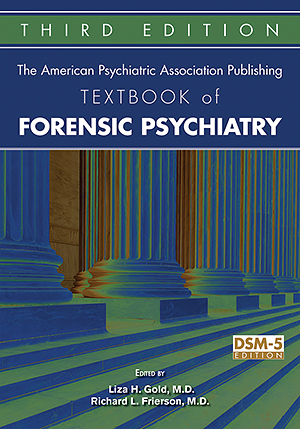Chapter 6.Evaluation of Malingering
Sections
Excerpt
The assessment of malingering is critical in forensic psychiatry and psychology. DSM-5 (American Psychiatric Association 2013) indicates that malingering should be considered when any combination of the following is noted: a medicolegal context, discrepancy between reported and objective findings, uncooperativeness with the evaluation or recommended treatment, or the presence of antisocial personality disorder. However, given the substantial external incentives in forensic evaluations (medicolegal context), most experts agree that malingering always should be considered (Chesterman et al. 2008).
Access content
To read the fulltext, please use one of the options below to sign in or purchase access.- Personal login
- Institutional Login
- Sign in via OpenAthens
- Register for access
-
Please login/register if you wish to pair your device and check access availability.
Not a subscriber?
PsychiatryOnline subscription options offer access to the DSM-5 library, books, journals, CME, and patient resources. This all-in-one virtual library provides psychiatrists and mental health professionals with key resources for diagnosis, treatment, research, and professional development.
Need more help? PsychiatryOnline Customer Service may be reached by emailing [email protected] or by calling 800-368-5777 (in the U.S.) or 703-907-7322 (outside the U.S.).



